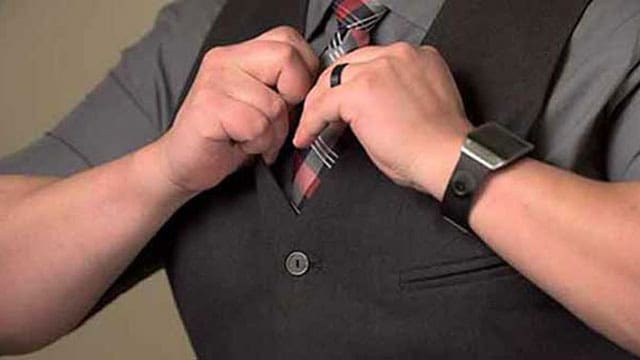Your chances of getting hired increase if you focus on your attitude rather than solely on your qualifications during the job interview
 I’ll break it down:
I’ll break it down:
- If your interviewer likes you, they’re going to hire you.
- If they don’t like you, they won’t hire you.
- Likeability is the rarest commodity there is.
- During an interview, you assume your interviewer is asking questions about your skills, abilities, and background; they’re not. They’re asking you questions to determine if they like you.
- Then you hear, “We hired someone whose skills, qualifications, and background more closely match what we’re looking for,” and think you weren’t qualified enough for the job. So, you decide to return to school for another degree or certification to “upskill.”
- You were qualified (Employers don’t schedule interviews with candidates who aren’t qualified); you just weren’t likeable.
 |
| Related Stories |
| The ultimate guide to job interview preparation
|
| Five power moves you can try in your next job interview
|
| Five mistakes candidates often make in job interviews
|
Your skills, resume, LinkedIn profile, and digital footprint will get you interviews. Your character and personality are what get you hired. Hence, the advice “Hire for attitude, not aptitude” is floated around. Rather than chasing more education and skills, consider taking a Dale Carnage course to enhance your social etiquette and become more likeable.
Recently, an HR Director at a telecom company told me, “I can hire technically advanced and degreed candidates all day. What is harder to find is someone I can trust to show up every day, who’s proactive, who doesn’t make excuses, who’ll dedicate themselves to getting the job done, and who will go above and beyond.”
The other day, I came across an article that discussed an aspect of the job interview few people consider: their behaviour. Most interview advice revolves around how to answer the questions a candidate is likely to be asked, but what about their behaviour?
The article, This Manager Won’t Hire Anyone Who Fails His ‘Coffee Cup Test, described Trent Innes’ “coffee cup test” he uses to assess candidates. Innes is the Chief Growth Officer at SiteMinder
Before starting the interview, Trent gives the candidate a tour of SiteMinder’s office, culminating with stopping by the kitchen and offering a cup of coffee or tea. Then, with a beverage in hand, Trent and the candidate head to Trent’s office for the interview. At the end of the interview, Trent observes what the candidate does with their empty cup. Do they offer to take it back to the kitchen? If not, Trent passes on the candidate.
Trent’s concern about a candidate’s character and social etiquette is understandable. A workplace – a shared space – is essentially a social structure; those who work in it should possess fundamental social skills to get along with their coworkers and, most importantly, not be a disruption. Social etiquette shows you have consideration (read: respect for) of other people, which significantly increases your likeability.
The phrase “Actions speak louder than words” is derived from “Actions are more significant than words,” which Gershom Bulkeley wrote in his book Will and Doom, published in 1692. This concept is the foundation of how we judge someone, especially when meeting them for the first time.
Your behaviour, mannerisms, and actions speak volumes about who you are and what you stand for. Even though I’ve never done the coffee cup test, I notice certain behaviours, such as making eye contact, showing confidence, standing up to greet me when I walk into the reception area, and shaking hands.
I like Trent’s cup test. It’s an excellent gauge of character and considerateness. A person who offers to return the cup is unlikely to carry a sense of entitlement, which regular readers of this column know rubs me the wrong way or complain about first-world problems and are likely to take personal responsibility and be emotionally intelligent, a trait that’s becoming less common.
An interview is the entirety of a candidate’s presence on the premises of the company they’re interviewing with. How you arrive, park, enter, and treat the receptionist and other employees, along with everything you say and do while on the company’s property, goes into the hiring decision mix, not just what you say when speaking with your interviewer.
An interview isn’t an assessment of your skills and experience, at least not to the extent you think. Your interviewer knows your skills and experience from your resume and LinkedIn profile. When an employer is interviewing you, it’s because you have the qualifications they’re looking for and need. Yes, your interviewer will assess your skills and experience, but not as much as your character, values, mannerisms, and whether you’ll fit in well with the team/company or possibly be a disruption.
Therefore, as a job seeker, do yourself a huge favour by not focusing so much on selling your skills and experience. Instead, focus on your social etiquette, presenting yourself as a friendly, easygoing, likeable person who’s considerate of others and, therefore, will be easy to work with.
Nick Kossovan, a well-seasoned veteran of the corporate landscape, offers advice on searching for a job.
For interview requests, click here.
The opinions expressed by our columnists and contributors are theirs alone and do not inherently or expressly reflect the views of our publication.
© Troy Media
Troy Media is an editorial content provider to media outlets and its own hosted community news outlets across Canada.


